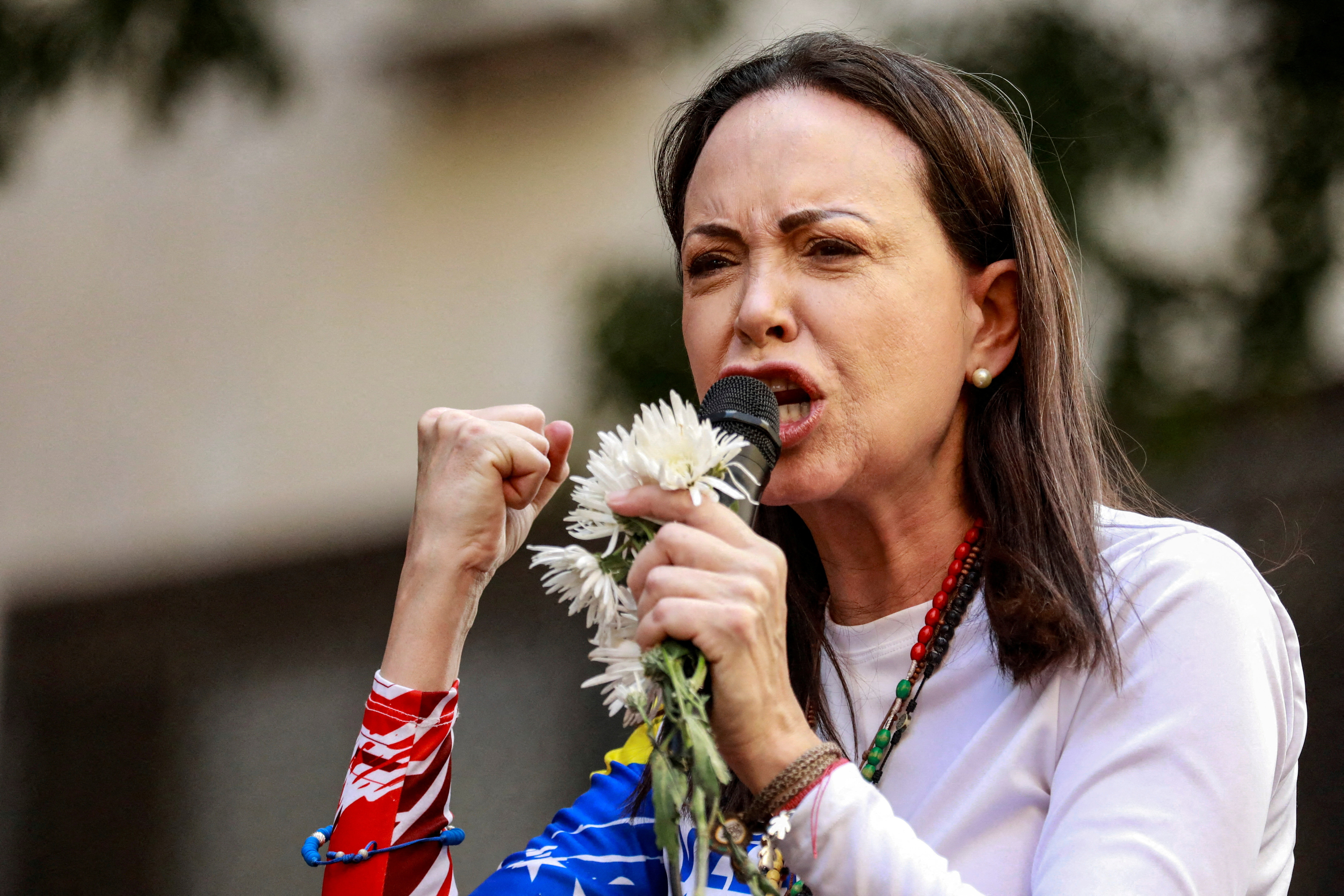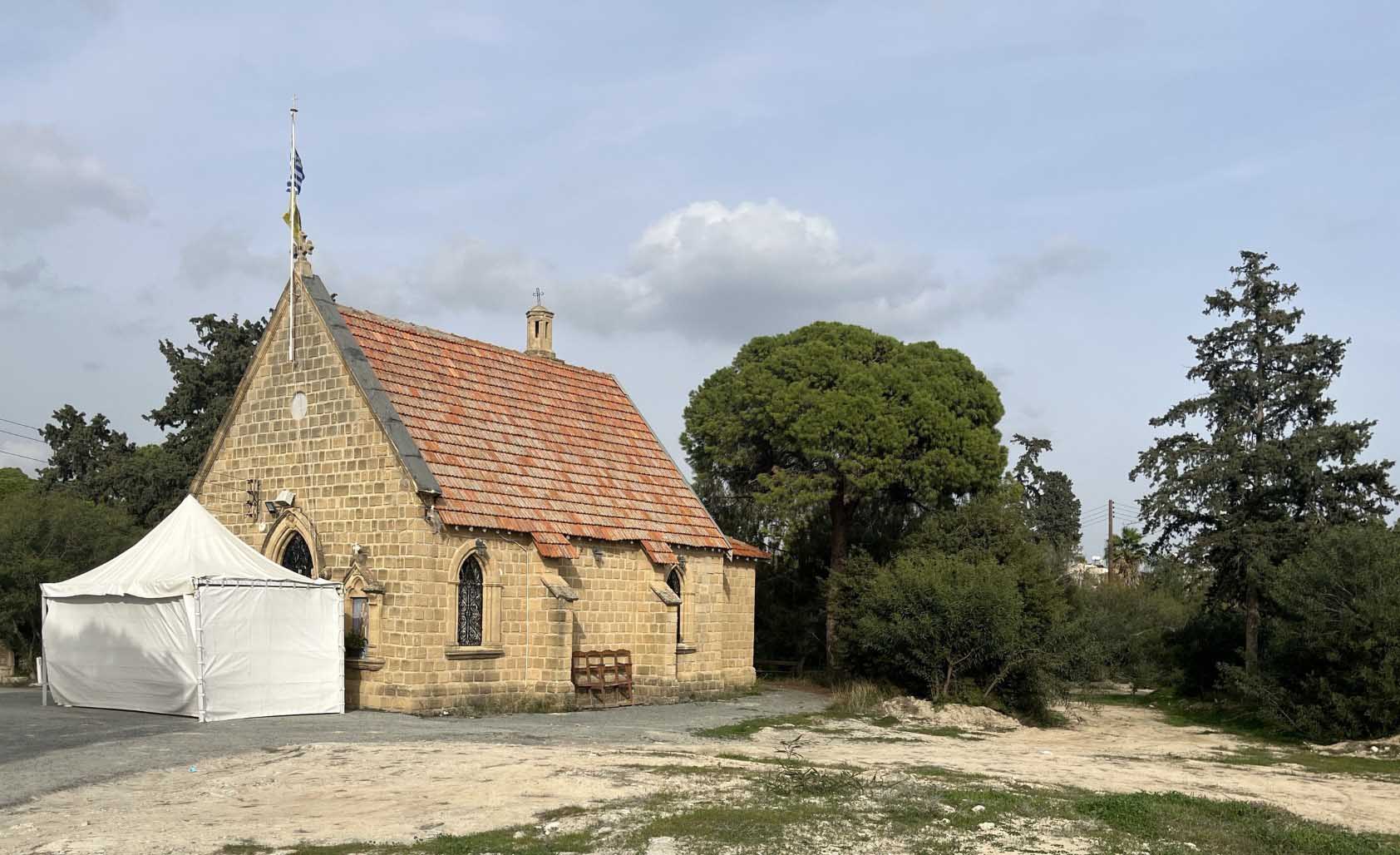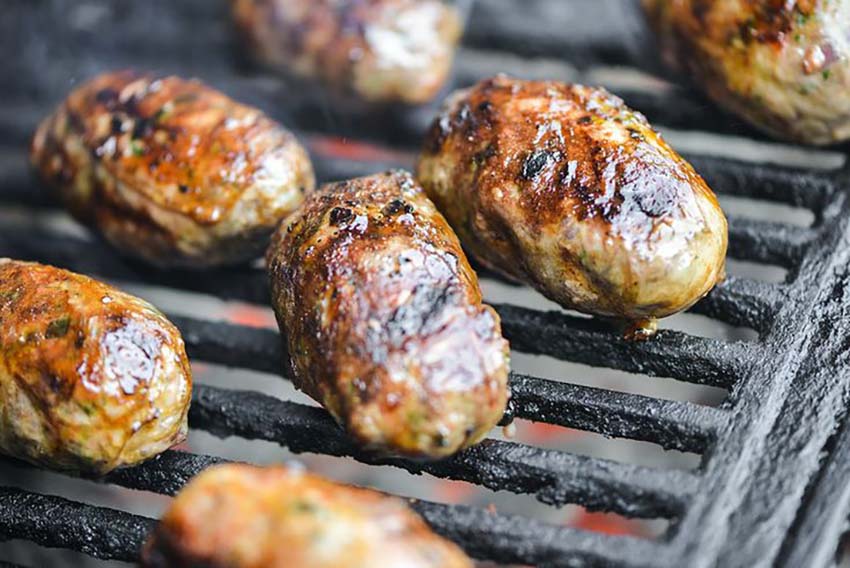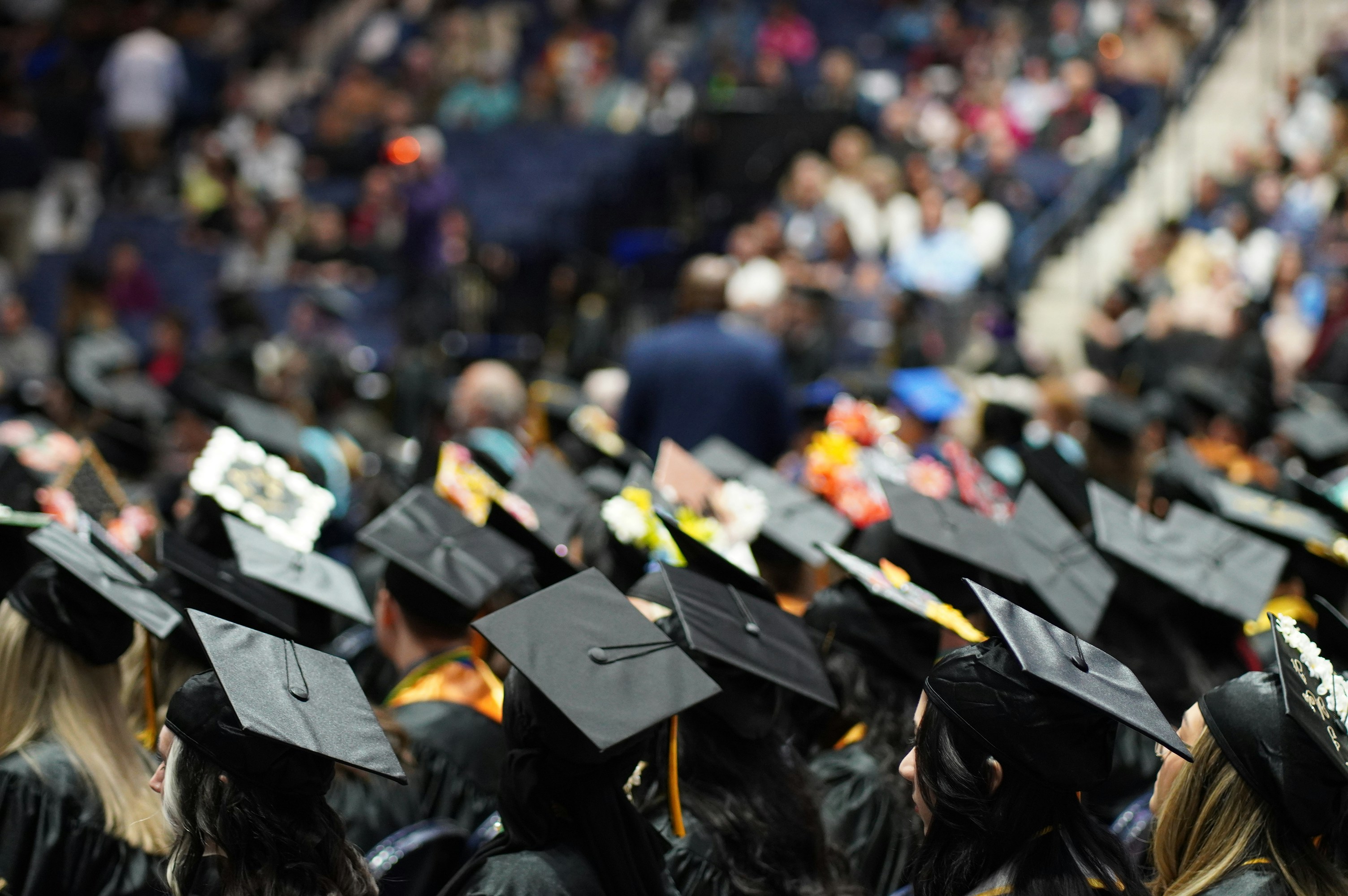Venezuelan opposition leader Maria Corina Machado, who lives in hiding, won the 2025 Nobel Peace Prize on Friday for fighting dictatorship in the country, receiving the award despite U.S. President Donald Trump’s repeated insistence he deserved it.
Machado, a 58-year-old industrial engineer, was blocked in 2024 by Venezuela’s courts from running for president and thus challenging President Nicolas Maduro, who has been in power since 2013.
“Oh my God … I have no words,” Machado told the secretary of the award body, Kristian Berg Harpviken, in a phone call which the Nobel Committee posted on social media.
“I thank you so much, but I hope you understand this is a movement, this is an achievement of a whole society. I am just one person. I certainly do not deserve it,” she added.
WHITE HOUSE CRITICISES DECISION AS ‘POLITICAL’
The White House criticised the decision, just days after Trump announced a breakthrough in talks to halt the fighting in Gaza between Israel and Hamas.
“President Trump will continue making peace deals, ending wars, and saving lives… The Nobel Committee proved they place politics over peace,” White House spokesperson Steven Cheung said in a post on X.
Maduro, whose 12 years in office have been marked by deep economic and social crisis, was sworn in for a third term in January this year, despite a six-month-long election dispute, international calls for him to stand aside and an increase in the U.S. reward offered for his capture.
“When authoritarians seize power, it is crucial to recognise courageous defenders of freedom who rise and resist,” the Norwegian Nobel Committee said in its citation.
WILL SHE BE ABLE TO ATTEND CEREMONY?
It was not immediately clear whether she would be able to attend the award ceremony in Oslo on December 10.
Should she not attend, she would join the list of Peace Prize laureates prevented from doing so in the award’s 124-year-history, including Soviet dissident Andrei Sakharov in 1975, Poland’s Lech Walesa in 1983 and Myanmar’s Aung San Suu Kyi in 1991.
Machado is the first Venezuelan to win the Nobel Peace Prize and the sixth from Latin America.
The United Nations human rights office welcomed the award to Machado as a recognition of “the clear aspirations of the people of Venezuela for free and fair elections”.
The head of the award committee, Joergen Watne Frydnes, said he hoped the award would spur the Venezuelan opposition’s work.
“We hope that the entire opposition will have renewed energy to continue the work for a peaceful transition from dictatorship to democracy,” Frydnes told Reuters after the announcement.
It could also strengthen international pressure against the Maduro administration, said Human Rights Watch’s Americas director, Juanita Goebertus Estrada.
US HAS BEEN STRONG SUPPORTER OF VENEZUELAN OPPOSITION
The lead-up to this year’s award was dominated by Trump’s repeated public statements that he deserved to win the award. Trump is also a fierce critic of Maduro.
“I think the main takeaway is that the committee is again demonstrating its independence, that they wouldn’t be swayed by popular opinions or political leaders to award the prize,” Halvard Leira, research director at the Norwegian Institute of International Affairs, told Reuters.
“The democratic opposition of Venezuela is something that the U.S. has been eager to support. So, in that sense, it would be hard for anyone to constitute this as an insult to Trump.”
The United States has struck several vessels allegedly carrying drugs off the coast of Venezuela in recent weeks.
Trump has also said the U.S. would look into attacking drug cartels “coming by land” in Venezuela.
Trump has determined that the U.S. is engaged in “a non-international armed conflict” with drug cartels, according to a document notifying Congress of its legal justification for deadly U.S. strikes on boats off Venezuela.
GAZA DEAL TOO LATE FOR TRUMP, THIS YEAR
Frydnes, the Nobel committee leader, declined to say what it would take for Trump or others to win the prize in the future, or if efforts to end the fighting in Gaza could lead to an award in 2026.
“If it is nominated, then it will be considered, but time will show,” Frydnes said.
“It’s not our task to tell other people or other countries what to do, our task is to give out the peace prize…. So we’ll have to see next year.”
The committee took its final decision before a ceasefire and hostage deal under the first phase of Trump’s initiative to end the war in Gaza was announced on Wednesday.
Ahead of the Nobel announcement, experts on the award had also said Trump was very unlikely to win as his policies were seen as dismantling the international world order the Nobel committee cherishes.
The peace prize is the fifth Nobel awarded this week, after literature, chemistry, physics and medicine. Japanese organisation Nihon Hidankyo, a grassroots movement of atomic bomb survivors from Hiroshima and Nagasaki, won in 2024.
The Nobel Peace Prize, worth 11 million Swedish crowns, or about $1.2 million, will be presented in Oslo on December 10, the anniversary of the death of Swedish industrialist Alfred Nobel, who founded the awards in his 1895 will.
Distribution of Nobel laureates
How is it decided?
WHO DECIDES?
The Norwegian Nobel Committee, which consists of five individuals appointed by the Norwegian parliament. Members are often retired politicians, but not always. The current committee is led by the head of the Norwegian branch of PEN International, a group defending freedom of expression. Another member is an academic.
They are all put forward by Norwegian political parties and their appointments reflect the balance of power in Norway’s parliament.
WHO CAN WIN?
The short answer is: whoever fits the description set out in the 1895 will of Swedish industrialist Alfred Nobel. It says the prize should go to the person “who has done the most or best to advance fellowship among nations, the abolition or reduction of standing armies, and the establishment and promotion of peace congresses”.
The more complicated answer is that the prize “needs to be placed in the current context”, according to Kristian Berg Harpviken, the award committee’s secretary, who prepares the work for the award body. He participates in the deliberations but does not vote.
“They will look at the world, see what is happening, what are the global trends, what are the main concerns, what are the most promising processes that we see,” he told Reuters.
“And processes here can mean anything from a specific peace process to a new type of international agreement that is under development or that has recently been adopted.”
WHO CAN NOMINATE?
Thousands of people can propose names: members of governments and parliaments; current heads of state; university professors of history, social sciences, law and philosophy; and former Nobel Peace Prize laureates, among others.
This year there are 338 nominees. The full list is locked in a vault for 50 years.
HOW DOES THE COMMITTEE DECIDE?
Nominations close on January 31. Members of the committee can make their own nominations no later than their first meeting in February.
They discuss all the nominations, then establish a shortlist. Each nominee is then assessed and examined by a group of permanent advisers and other experts.
The committee meets roughly once a month to discuss the nominations. The decision tends to be taken in August or in September, said Harpviken.
The committee seeks to reach a consensus on its selection. If it cannot, the decision is made by majority vote.
The last time a member quit in protest was in 1994, when Palestinian leader Yasser Arafat shared the prize with Israel’s Shimon Peres and Yitzhak Rabin.
WHO IS NOMINATED?
While the full list of nominations is kept secret, nominators are free to disclose them. There is no way of verifying they have done as they have said.
Among the names disclosed this year are the International Criminal Court, NATO, jailed Hong Kong activist Chow Hang-tung and Canadian human rights lawyer Irwin Cotler.
The leaders of Cambodia, Israel and Pakistan have said they nominated U.S. President Donald Trump. Their nominations were made in spring and summer, after the January 31 deadline, so they are not valid for the 2025 prize.







Click here to change your cookie preferences